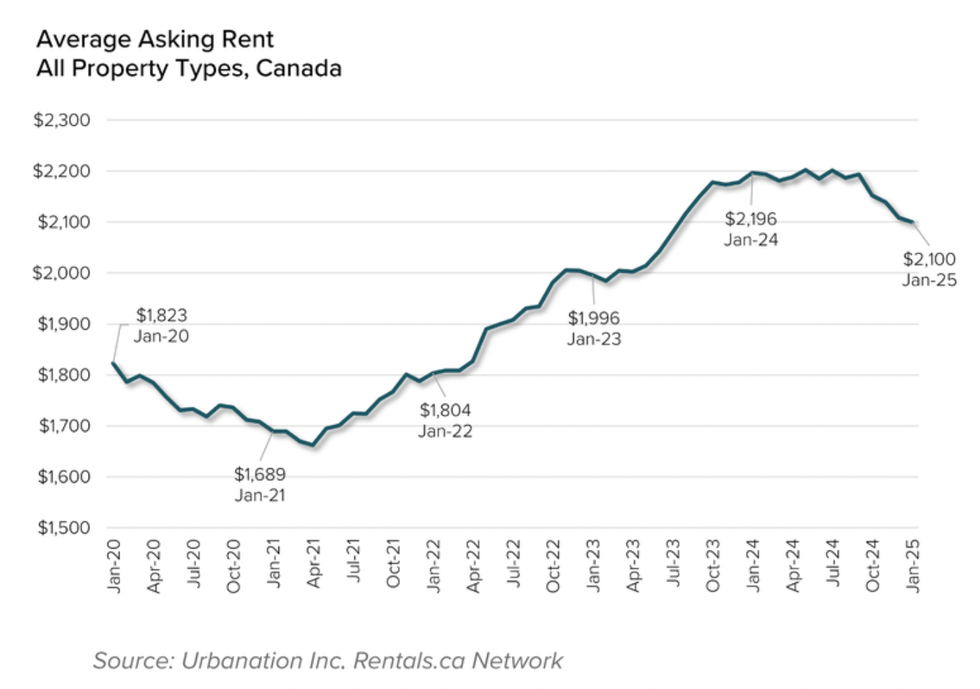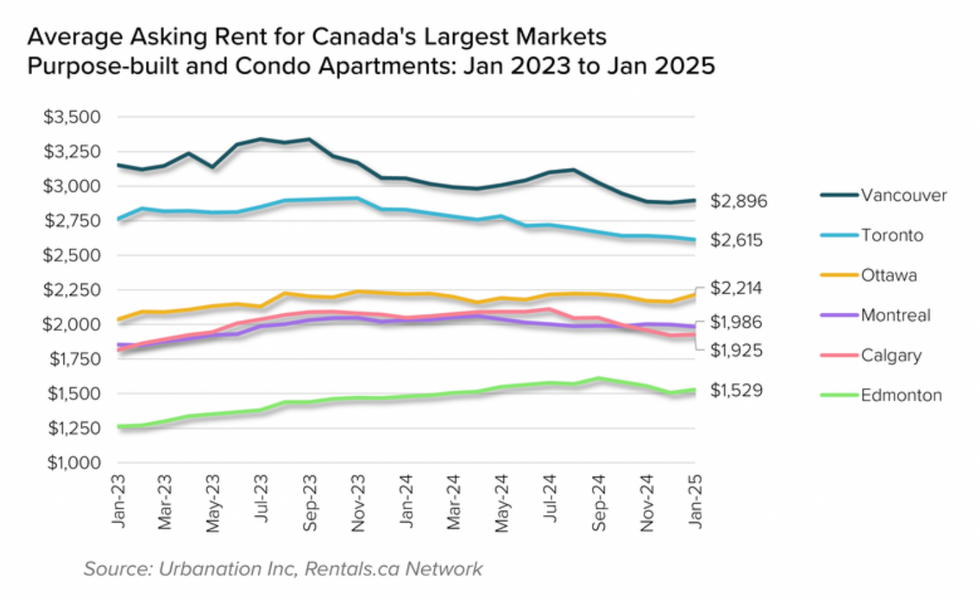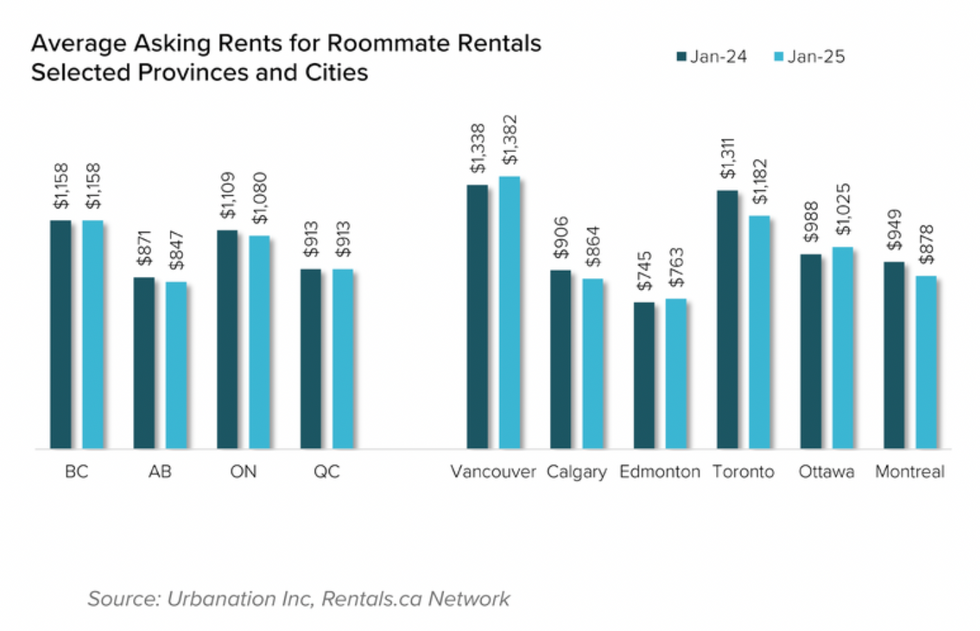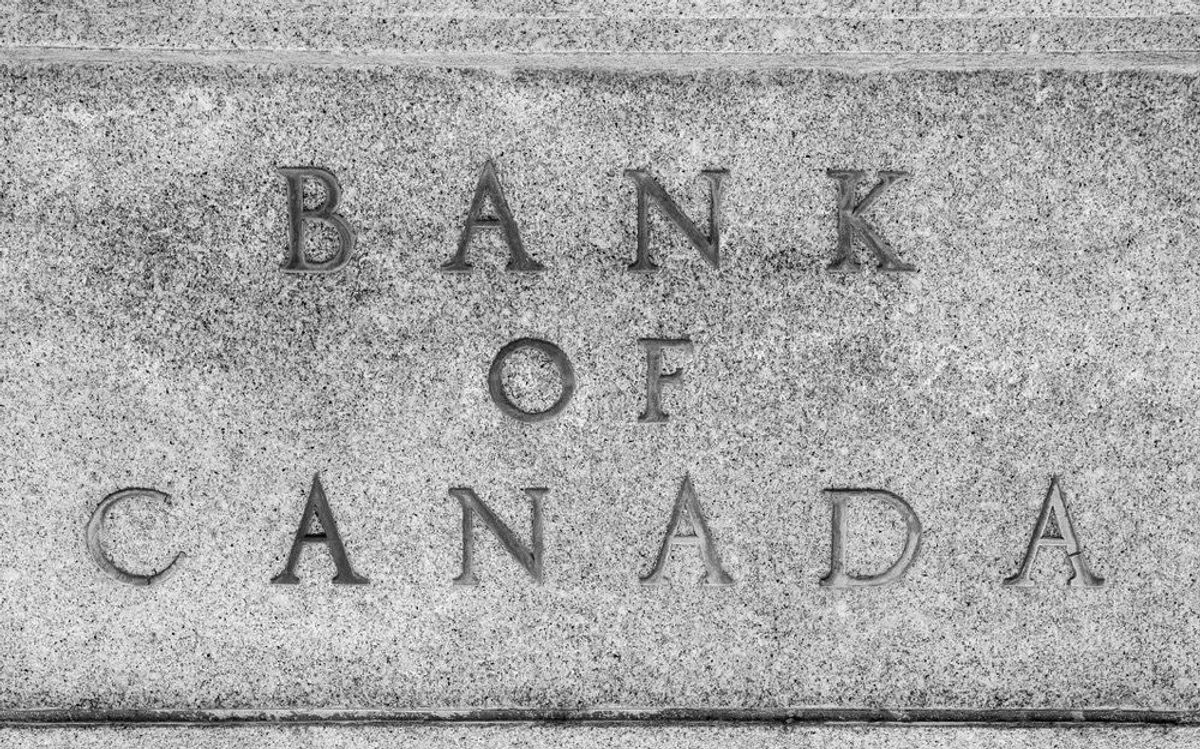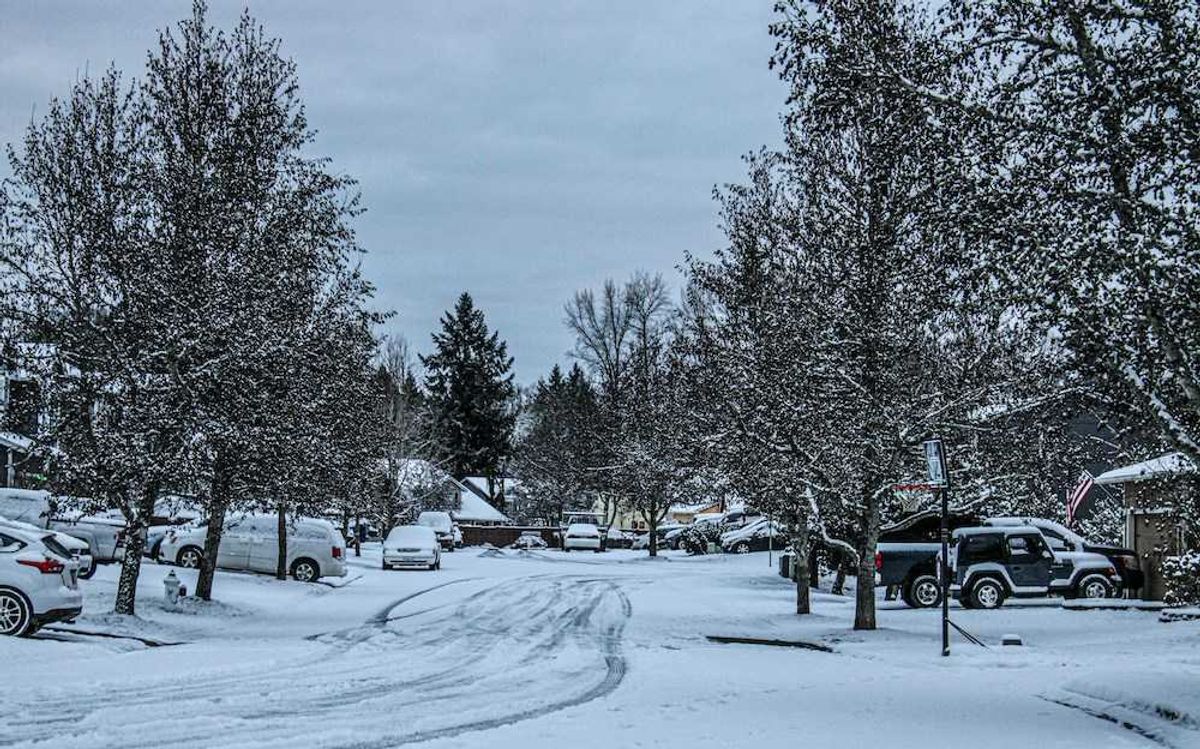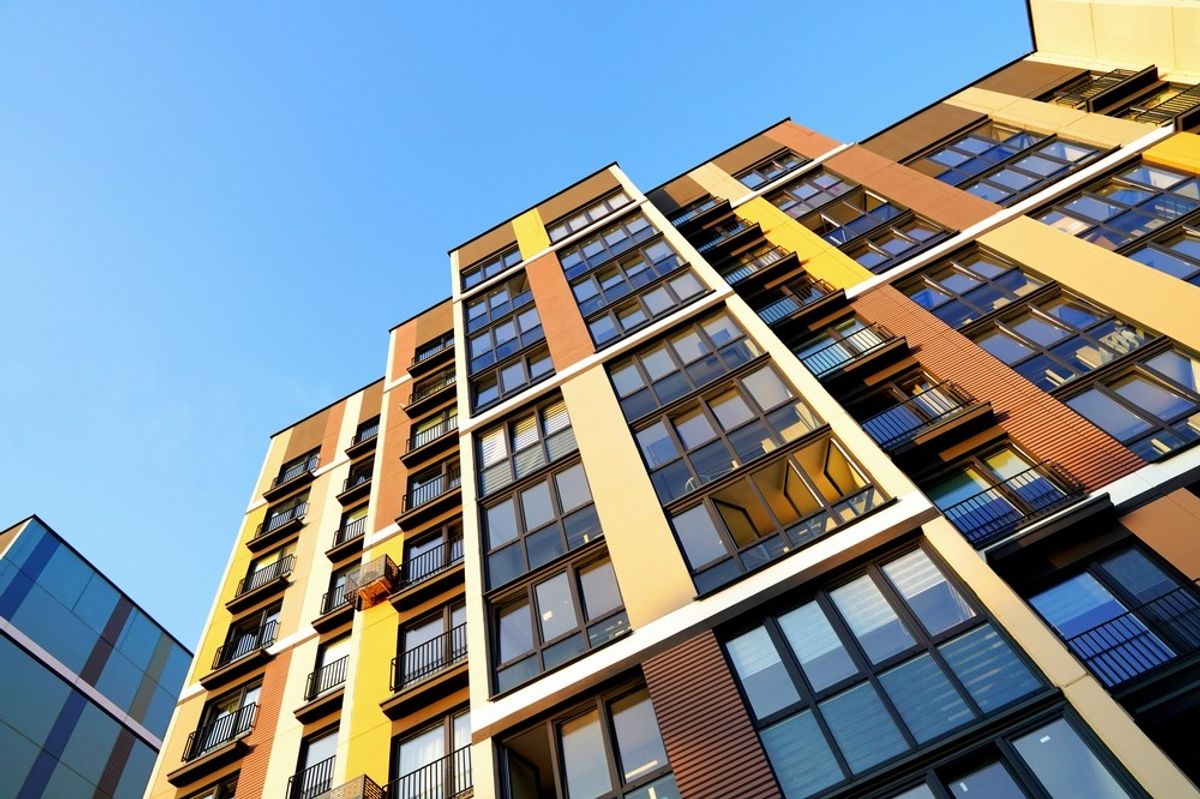The average national asking rent continued to decline in the new year, according to the latest National Rent Report from Rentals.ca and Urbanation, with Ontario leading the charge.
January marks the fourth consecutive month of this trend after rents began to fall for the first time since 2021 in October, before reaching a 17-month low in December.
Compared to December, January saw the national average inch down from $2,109 per month to $2,100 per month, but on an annual basis, rent was down $96, marking a 4.4% year-over-year decline and an 18-month low.
While the trend doesn't bode well for investors, it does point towards more affordable conditions for renters in the coming months. The last four months follow 38 straight months of annual rent increases, and currently, rents remain 16.4% above levels recorded three years ago.
“The downward trend for rents in Canada accelerated during the first month of 2025. Heightened downside risks for the economy, combined with declining international population inflows and multi-decade highs for apartment completions, suggest rents will continue to weaken in the months ahead," says Shaun Hildebrand, President of Urbanation, in a press release. "This will result in improved affordability for renters."
In terms of location, Ontario renters are seeing the most relief, with average rent in January falling 5.2% annually to $2,329 per month, compared to $2,632 in December — an over $300 difference in one month. Toronto saw the most significant rent decline out of the largest cities at -7.6%, bringing average rent down to $2,615, a 30-month low.
BC saw a lesser annual decline of 2.6% but remains the most expensive locale with average rent at $2,463 per month. And in Vancouver, rents have now fallen for 14 consecutive months, posting a 5.2% year-over-year decline to $2,896 in January.
Elsewhere saw numbers that were less dramatic, such as a 0.7% dip in Nova Scotia and a slight increase of 0.4% in Quebec, while in already more affordable markets like Alberta, Saskatchewan, and Manitoba, 2-3% annual increases in average rent were posted. However, Calgary saw a 6% decrease to $1,925.
As for product type, the secondary market saw most of the decline, with condominium apartments falling 6.5% year over year to an average of $2,219, while rents for houses and townhomes declined 8.9% to $2,144. On the purpose-built rental side of things, overall rents only fell 1.7%, with studio and three-bedroom purpose-built apartments actually increasing 0.5% and 2.1% year over year, respectively.
And due to a 42% increase in shared accommodations listings in January, roommate rents fell 7.6% annually to $933, the lowest level in 18 months. The largest declines were seen in Alberta and Ontario where roommate rents dropped 2.7% and 2.6% year over year, respectively.

